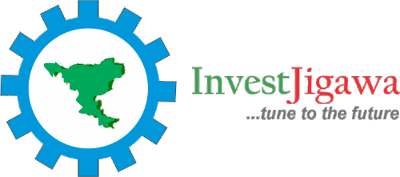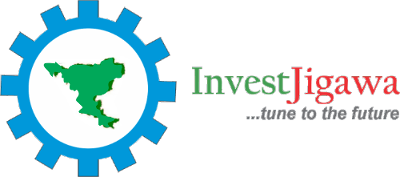INTRODUCTION
Jigawa State’s manufacturing sector, notably light manufacturing, is gradually expanding, primarily driven by agro-processing and solid minerals sub-sectors. The state’s strategic location, availability of raw materials, and supportive infrastructure make it a prime destination for manufacturing industries. The sector contributed 12.9% to the state’s GDP in 2020, with continuous growth expected due to infrastructure investments and a growing industrial base.
Sector Overview
The manufacturing sector in Jigawa State is experiencing a transformative phase, driven by the state’s abundant natural resources, including solid minerals and agricultural produce. The sector has benefited from a well-developed infrastructure, characterized by one of the best road networks in Nigeria, which facilitates the efficient movement of goods to key markets, particularly Kano, the largest commercial city in the north. With a youthful population approximately 49% of the state’s 7.7 million residents aged between 15 and 59, the workforce is readily available for various industrial activities.
Key manufacturing sub-sectors, such as light manufacturing in agro-allied industries, plastic and leather, beverages production and food processing, are rapidly expanding, supported by significant government investment in infrastructure and policy reforms aimed at enhancing business conditions. The state’s focus on agro-industrialisation presents ample opportunities for investors, especially in establishing processing facilities for agricultural products like rice, wheat, tomato, sesame seeds, hibiscus flower and groundnuts.
Key Industries
- Agro-allied industries: Jigawa is witnessing significant investments in agro-processing, particularly in the areas of dairy, cereal milling, cassava processing, and livestock processing.
- The proposed sugar factory and plantation farm by Lee Group through its subsidiary company Great Northern Agribusiness (GNA) Limited in Gagarawa LGA is a good example that represents a significant investment in the agro-industrial sector. With plans for integrated power generation and additional manufacturing units, this project has the potential to create thousands of jobs and stimulate economic growth in the state. Other notable investments include Malam Alu Agro Allied Limited for tomato production, poultry, diary and fertilizer blending plant, and Majestic Farms Limited’s rice mill and agro-processing facility. In addition, other companies include, Jigawa Rice Mill Limited in Gagarawa LGA, Three Brothers Rice Mill in Hadejia LGA, Danmodi Rice Mill at Kafin Hausa LGA, as well as Dangote Rice Mill at Kaugma LGA among others. These ventures collectively demonstrate the diverse industrial landscape of Jigawa State and its capacity for sustained economic development.
- Over the past 8 to 9 years, new agro-industrial facilities have been established, providing employment and value addition to agricultural produce. These include (a) a sesame processing plant and farmers academy established by WACOT Limited (a subsidiary of TGI Group) at Gumel LGA, (b) a hibiscus processing plant and fumigation chamber established by Comttraex Limited at Maigatari LGA in collaboration with Jigawa State Government under a PPP arrangement where the hibiscus flower will be packaged under the brand name “Comttra Jigawa”, and (c) a tomato production farm at ‘Yankwashi LGA by Caraway Africa Nigeria Limited, a subsidiary of Olam Group.
- Fertilizer blending plants: Given the state’s strong agricultural base, there is increasing demand for fertilizer blending factories to support crop production. Jigawa is home to several fertilizer plants, which contribute to both local use and export markets. The establishment of renowned companies in the state would be a good example. These include (a) Malam Alu Fertilizer Blending plant in Birnin kudu LGA, (b) Northern Fertiliser Company Limited, and (c) Jigawa Fertilizer Limited both at Gagarawa LGA.
- Small and Medium Enterprises (SMEs): The emergence of small-scale industries in rice milling, groundnut oil production, food and cereal processing reflects Jigawa’s growing economy. Cottage industries are thriving, contributing to job creation and poverty reduction. Some of these SMEs include Jifatu Food Processing Limited and Amana Rice Limited in Dutse LGA, and Biak Continental Limited, a rice mill in Kiyawa LGA.
Sector Performance
The manufacturing sector’s contribution to Jigawa’s GDP reached ₦35 billion in 2020, with agro-processing industries leading the growth. Jigawa’s fertilizer blending factories have an annual capacity of 50,000 metric tons, serving both the state’s agricultural needs and neighbouring states.
Investment Opportunities In Manufacturing
- Fertilizer blending: Given the state’s ₦15 billion fertilizer industry, there is room for expanding production capacities to meet both local demand and potential exports to neighboring states.
- Textile manufacturing: Jigawa’s annual cotton potential production of 10,000 metric tons can be exploited to introduce modernisation in the sector and exploring export markets.
- Food and beverage processing: The ₦15 billion food and beverage industry, driven by agricultural produce, offers investment potential in packaging, storage, and distribution facilities.
- Plastic and leather factories: The state’s expanding industrial base provides opportunities for establishing plastic and leather manufacturing factories, catering to local and regional markets. This will include the exploitation of the existing livestock subsector to ensure utilisation of the hides and skins for processing and production of tannery and leather products.
Economic Contributions and Growth
The manufacturing and industrial sector in Jigawa State contributed approximately 12.9% to the state’s GDP, underscoring its growing significance alongside agriculture. Ongoing projects, such as the Gagarawa Industrial Park and Special Agro-industrial Processing Zones (SAPZ), are designed to attract investments and enhance the state’s industrial and manufacturing capabilities. Additionally, the state’s commitment to improving infrastructure, including roads, railways, and airports, is expected to bolster industrialization efforts and improve export capabilities.




